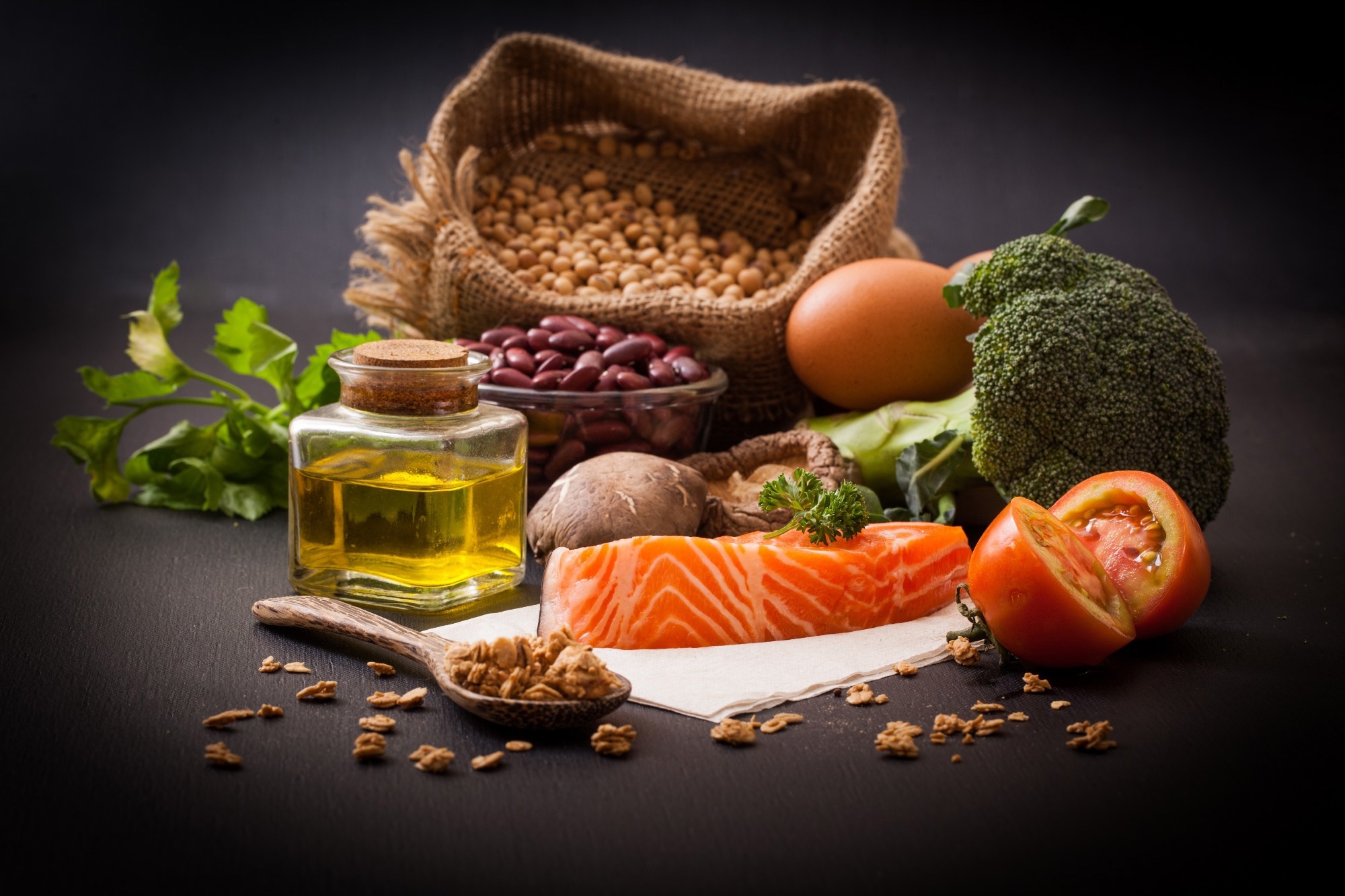New study shows that eliminating processed meat and boosting fruit intake may add years to life and reduce the burden of heart disease, diabetes, and cancer in the Netherlands.
 Study: Non-communicable disease burden through adhering to Dutch dietary guidelines: a modeling study to estimate future reductions. Image Credit: nait029 / Shutterstock.com
Study: Non-communicable disease burden through adhering to Dutch dietary guidelines: a modeling study to estimate future reductions. Image Credit: nait029 / Shutterstock.com
A recent study published in The Lancet investigates the impact of current Dutch dietary guidelines on non-communicable disease (NCD) rates.
The impact of diet on NCDs
Poor dietary habits play a central role in the development of NCDs, thus emphasizing the importance of dietary interventions in reducing the global burden of these diseases.
The typical Western diet is characterized by inadequate intakes of plant-based protein, fat, and fiber, from legumes, whole grains, nuts and seeds, fruit and vegetables. The high consumption of red and processed meat, as well as sugar-sweetened beverages (SSBs), which is often characteristic of the Western diet, has been shown to increase the risk of several NCDs including stroke, coronary heart disease (CHD), type 2 diabetes, lung cancer, and colorectal cancer.
NCDs remain an important public health challenge throughout the world, including the Netherlands, where over 1.5 million people are predicted to be diagnosed with diabetes by 2040, along with 1.1 million CHD cases. The clear association between NCD risk and diet emphasizes the importance for identifying optimal dietary products to reduce NCD burden and its future impact on the global population.
About the study
The current study quantified how the adherence to specific components of the Dutch dietary guidelines may impact NCD burden by the year 2050.
We assumed that changes in food consumption levels to optimal levels defined by dietary guidelines would lower population NCD risk, thus reducing NCD incidence, prevalence, and mortality, which would ultimately decrease the overall NCD burden.”
Data were obtained from over 2,000 male and female Dutch residents between 19 and 79 years of age. All study participants completed the Dutch National Food Consumption Survey (DNFCS) 2012-2016 to determine their consumption of fruit, vegetables, whole grains, nuts/seeds, legumes, fish, red and processed meat, dairy products, tea, and SSBs.
These data were subsequently used to identify any correlations that might exist between the consumption of certain foods with the risk of five NCDs, of which included CHD, stroke, type 2 diabetes, colorectal cancer, and lung cancer.
Study findings
Among both men and women, the lowest adherence to current Dutch food dietary guidelines was observed for legumes, nuts/seeds, processed meat, and tea, whereas the highest adherence was associated with red meat and whole grain intake
Based on these data, the researchers modelled how achieving complete adherence to current Dutch dietary guidelines would affect the future prevalence of NCDs in the Netherlands. Eliminating processed meats from the diet, for example, was associated with the most significant reduction in CHD, which was equivalent to a decrease of 18.5% and 23.8% of CHD cases in women and men, respectively.
Removing processed meat from diet was similarly predicted to reduce the risk of diabetes and colorectal cancer cases by 18.6 and 8.7% in women, respectively, as well as 24.5% and 10.4% in men.
Similar benefits were predicted with guideline-adherent fruit intake. For men and women, increased fruit consumption could reduce the risk of stroke by 19.1% in men and 17.7% in women. Lung cancer rates are also expected to decline if the representative population meets current fruit intake recommendations, with the researchers projecting a reduced risk of 8.2% and 7.2% in women and men, respectively.
Eliminating the consumption of processed meat could yield the largest gains in total lie expectancy at all ages.”
The impact of dietary habits on disease-free life expectancy at birth, age 50, and age 70 in 2050 was also predicted. To this end, removing processed meat from the diet could lead to significant gains in over 1.5 and 2.5 years in women and men, respectively. The consumption of fruit, whole grains, and nuts/seeds could also improve disease-free life expectancy rates for both men and women, with the smallest gains attributed to dairy product intake.
Conclusions
Adherence to Dutch dietary guidelines has the potential to significantly reduce the incidence of NCDs including CHD, diabetes, stroke, colorectal cancer, and lung cancer. The study findings also suggest that total and disease-free life expectancy years would rise by eliminating processed meat and increased fruit intake.
Journal reference:
- Duan, M., Poelman, M. P., & Biesbroek, S. (2025). Non-communicable disease burden through adhering to Dutch dietary guidelines: a modeling study to estimate future reductions. The Lancet. doi:10.1016/j.eclinm.2025.103170.